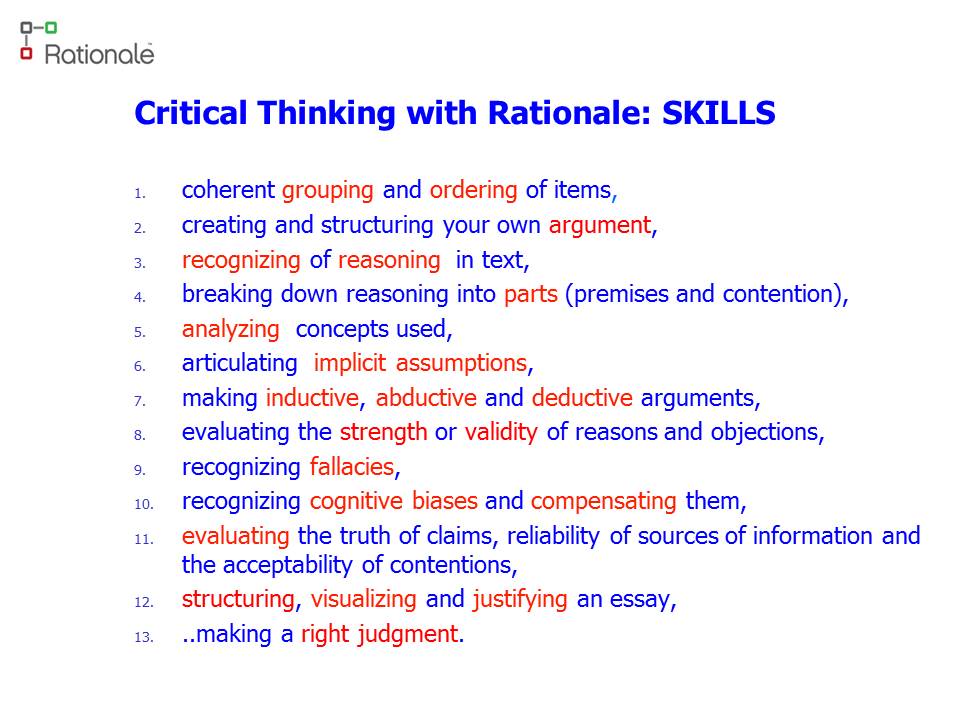What is critical thinking?
Knowledge, skills and attitude
Critical thinking requires an open and inquiring attitude, a number of reasoning skills and knowledge of the basic concepts of critical thinking.
A brief definition of critical thinking is: `the art of being right`. This – very – short definition of critical thinking will obviously not be clear to everyone and needs some explanation. Making clear what critical thinking is can perhaps best be done by describing the characteristics of the critical thinker.
The critical thinker is capable of actively and skillfully applying general principles and procedures of thought, as a result of which his judgments will be highly reliable and accurate. To put it in simpler words: he knows the principles and procedures of critical thinking and can apply them.
A critical thinker does not just state a contention without due consideration, that is to say, not without providing sound reasons bases on releiable sources; he evaluates the underpinning of claims, is not blind to possible objections against his contention, and is capable of refuting them. All this enables him to form a sound judgment of what to believe or what action to take.
A critical thinker is skilled at analyzing the claims of other people and can recognize the arguments in a text. He also sees when they are poor, can point out the flaws in an argument, bring hidden premises to the surface and point out fallacies.
The critical thinker is characterized by an open, inquiring attitude, also with regard to his own opinions, and takes nothing for granted. He is focused on the truth, prepared to weigh up the pros and cons of his own arguments and those of other people. He is curious, knows that things are often not as they seem to be at first sight, and is receptive to information that contradicts his own opinions. He has tentative opinions that may be adjusted over and over again. He knows that, just like anyone else, he has blind spots, and takes them into account.

